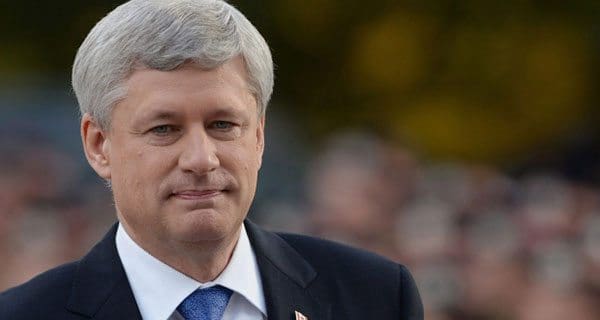 After an election campaign has ended, it is interesting to see how reporters, columnists, strategists and others interpret what has unfolded. Unique insights, however, comes from a political insider who is, for whatever reason, willing to talk.
After an election campaign has ended, it is interesting to see how reporters, columnists, strategists and others interpret what has unfolded. Unique insights, however, comes from a political insider who is, for whatever reason, willing to talk.
Which brings us to Jenni Byrne.
The former senior Tory strategist caught some people off-guard with her version of last year’s federal election campaign in an op-ed that appeared in the Globe and Mail on Feb. 8. She kept to the shadows while working for former prime minister Stephen Harper. So, it was intriguing to read her observations about the Tories’ organizational skills, challenges and future prospects.
What really stood out was Byrne’s decision to mention an “inside baseball” story in politics that, I’d argue, very few people likely know about.
“Another key factor that led to the Conservatives’ defeat,” she wrote, “was that the party needed the NDP to do well.” According to Byrne, “[h]aving argued since 2011 that the NDP were never our main opponent, including making the internally unpopular decision of dismantling our NDP unit that was tasked with tracking and attacking that party, I lost the argument to others who felt they were the more serious threat.”
She went on to say, “The decision during the campaign to turn our guns on the NDP was a mistake. They were never the party’s enemy. The final straw was when the party went after the NDP on the niqab issue. It crushed the NDP in Quebec, but it also removed them as a viable alternative in the rest of the country, something Conservatives needed them to be.”
Since I didn’t work in the 2011 or 2015 Tory war rooms, I have no idea if this was Byrne’s position. (I’ll take her word for it.) The discussion about the NDP and tactics, however, is revealing.
Although Tories and New Democrats are on different sides of the political spectrum, they have one thing in common: They’re both ideologically driven. In contrast, Liberals are classic fence-sitters. They have ideas and policies, of course, but tend to follow the direction of the prevailing political winds when they implement them.
Hence, there has always been some disagreement in right-leaning political circles about how to deal with Canada’s social democratic alternative. Some Tories support the old proverb “the enemy of my enemy is my friend,” meaning that the Liberals, and not the NDP, should always be the primary focus of a federal election campaign. Other Tories believe all political rivals should be treated as the enemy during an election, period.
I’ve always supported the latter concept.
Yes, the NDP has never formed the federal government. Until the 2011 federal election, they were seen as a perpetual third party in the House of Commons with a distinct support base. At the same time, the party’s electoral achievements at the provincial level should not be ignored. Provincial success could have eventually translated into federal success, depending how the chips fell on the campaign trail.
In fact, had things gone a bit differently last year – including with the controversial niqab debate, which crushed the NDP’s momentum – it’s possible that Tom Mulcair, and not Justin Trudeau, could have ended up at 24 Sussex Drive.
While I certainly don’t hate the NDP, they’re a political opponent and, in effect, an enemy. The Tories shouldn’t treat them with kid gloves, or give them fair warning about impending political attacks against other parties (which has happened in the past). The Conservatives’ decision to dissolve the party’s NDP unit was huge tactical error. It should have been front and centre during last year’s campaign.
The one good thing about Byrne’s revelation? Tories will be forced to realize that nice guys always finish last in politics. Take all of your rivals seriously, and don’t play favourites. Unless you’re content with spending time in the political wilderness.
Troy Media columnist and political commentator Michael Taube was a speechwriter for former prime minister Stephen Harper.
The views, opinions and positions expressed by columnists and contributors are the author’s alone. They do not inherently or expressly reflect the views, opinions and/or positions of our publication.


